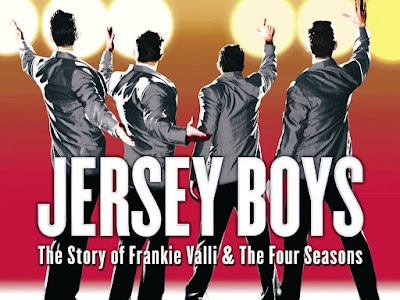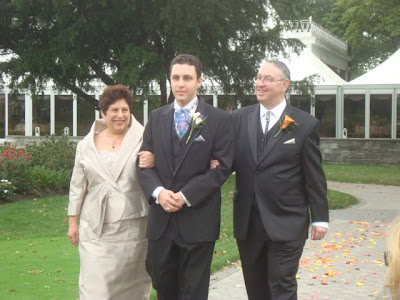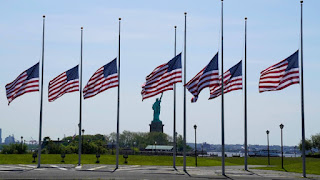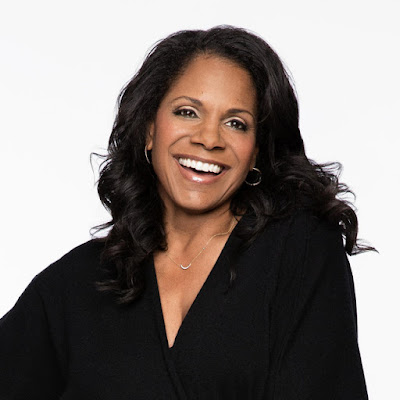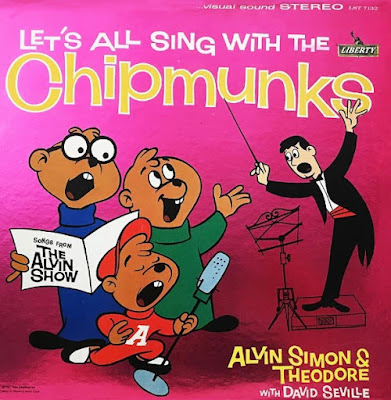All seasons must come to an end. Jersey Boys, the musical about Frankie Valli and the Four Seasons, has set a closing date for its Off-Broadway run. The show will play its final performance at New World Stages on Sunday, May 22.Jersey Boys has played in New York for nearly 17 continuous years. The musical opened at Broadway's August Wilson Theatre in 2005 and won four Tony Awards, including Best Musical, in 2006.
After closing on Broadway in January 2017, Jersey Boys reopened off Broadway in November 2017, where it has played until now.
Its only other hiatus was the industry-wide theatre shutdown amid the pandemic, reopening in November 2021 after closing in March 2020.
To mark this occasion, Abq Jew here and now presents his blog post of September 9, 2011 - Oh, What A Night! In which are recorded the momentous events of Thursday, September 1, 2011. And, of course the even more momentous event of Sunday, September 4, 2011.
All events now fondly recalled.
Ben's Deli & Jersey Boys: Last Thursday, Abq Jew & family had great seats all night - first at Ben's Deli, then at the August Wilson Theatre on 52nd Street. More about Ben's later; first things first.
How did four blue-collar kids become one of the greatest successes in pop music history? Find out at Broadway's runaway smash-hit, Jersey Boys. The Tony Award-winning Best Musical of 2006 takes you up the charts, across the country and behind the music of Frankie Valli and The Four Seasons.
Discover the secret of a 40-year friendship: four blue-collar kids working their way from the streets of Newark to the heights of stardom. And experience electrifying performances of the golden greats that took these guys all the way to the Rock and Roll Hall of Fame: "Sherry," "Big Girls Don't Cry," "Can't Take My Eyes Off You," "Dawn," "My Eyes Adored You," and more.
The last Broadway musical that Abq Jew & wife saw anywhere was Wicked, at the Popejoy. We paid about $60 per ticket, which, in the Albuquerque scheme of things, is a lot, but which, in the New York scheme of things, is very little. We enjoyed the show ... but we remember the ticket price.
The last Broadway musical that Abq Jew & family saw on Broadway was Annie Get Your Gun at the Marquis Theatre, sometime around the year 2000, twice. Once with Bernadette Peters and Tom Wopat, and again with Crystal Bernard and Tom Wopat. Yes, we enjoyed the show that much - so who remembers how much we paid?
Jersey Boys just began a national tour on Wednesday - in Omaha, of all places. And when, you ask, is Jersey Boys going to come to Albuquerque? According to the official schedule - never. So here is a taste of what you could see in Chicago or Dallas - but hey, if you're going to get on a plane, better you should just fly to The Big Apple and see the Broadway cast!
And now, a few words about Ben's Kosher Deli on 38th Street. There's good news ... and there's bad news.
The good news is: the food is delicious, the food is kosher, and Ben's delivers! The bad news is: not to Albuquerque.
But to Abq Jew, the best part of the Ben's experience was when a Chinese waiter - who spoke perfect Yiddish! - came over to take our order. After he went back to the kitchen, we called over Warren Krieg, the General Manager. We asked Warren, "Where did you find a Chinese waiter who knows Yiddish?" Warren put his finger to his lips. "Shh!" he said. "He thinks he's learning English."
Abq Jew must mention, once again, that he & family were in NYC for the wedding of his handsome and talented son, Dov Israel Yellin, to the beautiful and smart Dr Jessica Robin Schnur. Here's a photo:
As he is sure you can tell, Abq Jew published this remembrance
before this week's tragedy, for which all of us mourn.



